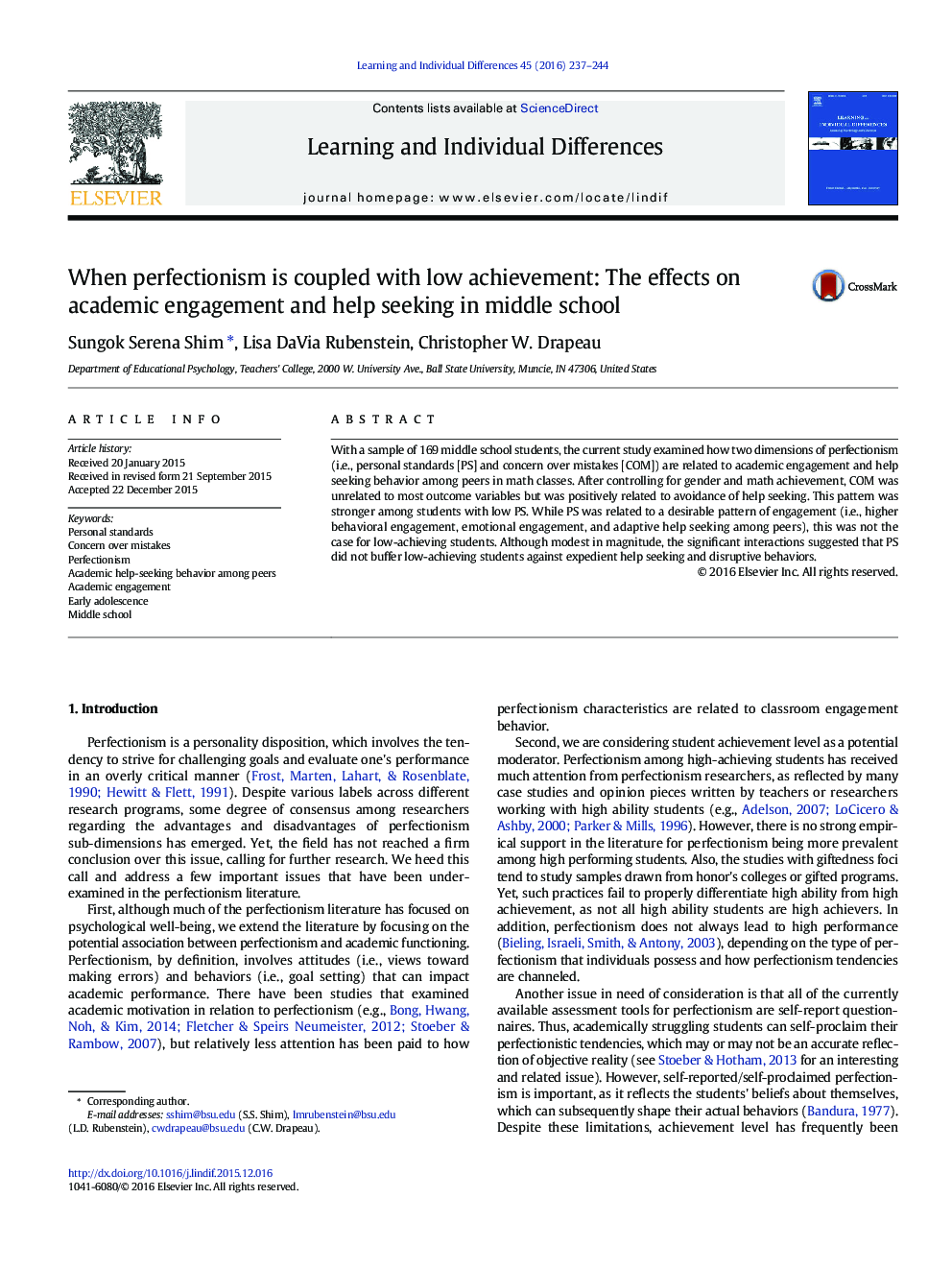| Article ID | Journal | Published Year | Pages | File Type |
|---|---|---|---|---|
| 364525 | Learning and Individual Differences | 2016 | 8 Pages |
•PS (personal standards) was related to high classroom engagement.•PS predicted adaptive help seeking among peers.•High PS may lead to a maladaptive pattern of engagement among low achievers.•Perfectionism tendencies may be more problematic for low achieving students.
With a sample of 169 middle school students, the current study examined how two dimensions of perfectionism (i.e., personal standards [PS] and concern over mistakes [COM]) are related to academic engagement and help seeking behavior among peers in math classes. After controlling for gender and math achievement, COM was unrelated to most outcome variables but was positively related to avoidance of help seeking. This pattern was stronger among students with low PS. While PS was related to a desirable pattern of engagement (i.e., higher behavioral engagement, emotional engagement, and adaptive help seeking among peers), this was not the case for low-achieving students. Although modest in magnitude, the significant interactions suggested that PS did not buffer low-achieving students against expedient help seeking and disruptive behaviors.
